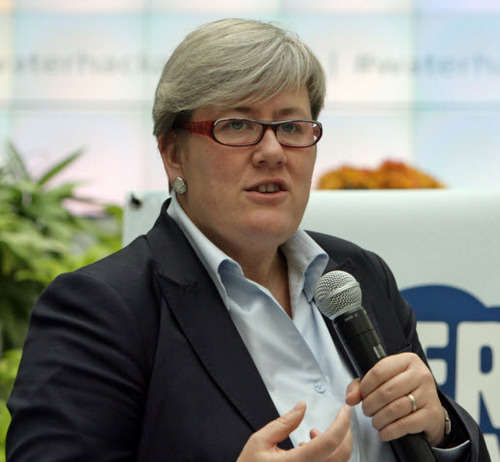Rural and vulnerable populations in developing countries could miss out on multiple wide-ranging benefits if they are forced to wait years, or even decades, to get access to electricity through first-ever power from the grid instead of through quicker to deploy decentralised renewable energy solutions, according to a report announced by Sustainable Energy for All (SEforALL) and Power for All on Thursday, November 16, 2017.

The “Why Wait? Seizing the Energy Access Dividend” report presents a first-of-its-kind approach to developing a framework for understanding and quantifying the financial, educational and environmental dividends for households through accelerated access to decentralised electricity, such as solar home systems and clean energy mini-grids.
The report indicates that households in Bangladesh, Ethiopia and Kenya – which were used as report case studies – can save hundreds of dollars, equivalent to the average annual income of between 61,800 and 406,000 people depending on the country and timeframe to deliver universal access, by bringing electricity access forward through use of solar to power household services like lighting and mobile-phone charging instead of kerosene or costly external phone-charging services.
Another benefit from decentralised services is more time for studying – equivalent to the time spent in school each year of between 142,000 and two million students depending on the country and timeframe to deliver universal access.
Announced at the UN Climate Change Conference (COP23) in Bonn, the data also shows significant black carbon emission reductions across the three countries – as much as 330 million metric tons of CO2 equivalent emissions, or roughly the emissions from 60 million passenger vehicles driven for one year– due to reduced kerosene use.
Why Wait? uses a framework for estimating the dividends of electricity access that is designed to help government leaders and other decision-makers assess the comparative advantages of different electrification options and services – ranging from more limited Tier 1 electricity service (a few hours of power a day) to more robust and costly Tiers 4 and 5 – to achieve Sustainable Development Goal (SDG) 7 of universal access to affordable, reliable, sustainable and modern energy for all by 2030.
In an apparent response to the report, the Pan African Climate Justice Alliance (PACJA) in collaboration with the Big Shift Campaign, organised a protest against the financing of fossil fuels on the sidelines of the COP23 climate talks in Bonn, Germany.
Campaigners at the event offered delegates the chance to put chocolate coins into either a green piggy bank representing green energy, or a brown piggy bank representing fossil fuels. PACJA’s Augustine Njamshi decried the state of energy poverty in Africa but vowed that civil society groups will frustrate attempts at pushing dirty energy solutions in Africa.
“For us in Africa, there are only two solutions to energy deficit, reneweable energy and renewable energy, nothing more,” Njamshi added.
Speaking on the report, Rachel Kyte, Special Representative to the UN Secretary-General and CEO, Sustainable Energy for All, said: “Decision makers are faced with competing priorities against finite resources. ‘Why Wait?’ provides powerful evidence on the development gains that can be achieved by focusing on integrated energy strategies that advance energy access. Household savings and hours of study time that are won because of access to energy.
“Denying those gains by not prioritising solutions to energy access risks holding back whole generation decentralised renewable energy as an attractive option for closing the energy access gap quickly, especially for remote rural areas. This work shows it can bring prosperity and education outcomes as well as other services energy provides.”
“Default approaches to electrification that rely on slow, expensive, fossil-fuel-powered centralised generation are out of date and out of time,” said Kristina Skierka, CEO of Power for All. “The Energy Access Dividend challenges business-as-usual by valuing ‘time to access’ – for the first time specifying the opportunity cost of large-scale projects that may never reach the 1 billion people around the world who still have to live without the benefits of electricity. Properly supported, decentralised renewable energy can deliver socio-economic dividends faster and at a lower cost.”
The report, produced in partnership with the Overseas Development Institute, comes just 12 years ahead of global energy goal deadlines, as many countries remain behind schedule in getting there. Just over one billion people are still living without electricity, according to the latest Global Tracking Framework report issued in May.
Bangladesh, Ethiopia and Kenya were chosen as case studies in the report due to their wide-ranging differences in terms of income levels, demographics and electrification rates. The countries also have significant energy access gaps, accounting for more than 180 million of the one billion people still living without power.
Courtesy: PAMACC News Agency
